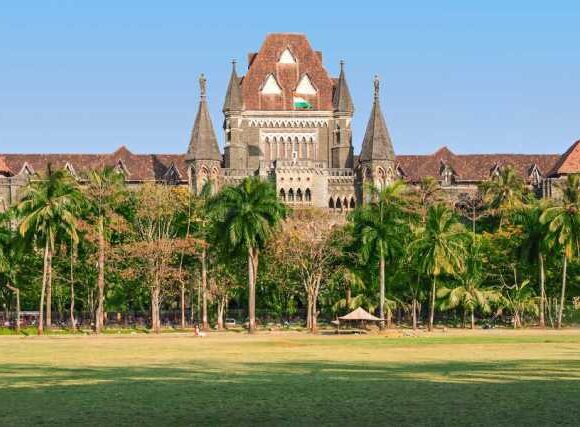CJI Khanna defers pleas on Wqf Act to May 15, says Centre’s reply needs ‘consideration’; to be heard by successor
NEW DELHI, MAY 5 : The Supreme Court on Monday said the batch of pleas challenging the constitutional validity of the contentious Waqf (Amendment) Act will be heard by Chief Justice of India-designate Justice B R Gavai on May 15.
The incumbent CJI, Justice Sanjiv Khanna, who is set to retire on May 13, said that he would not want to reserve judgment or an interim order on the matter as certain aspects of the law needed clarification.
“There are certain aspects which you (Centre) dealt with, but that require clarification. I do not want to reserve any judgment or order at this interim stage. This matter will have to be heard on a reasonably early date and this will not be before me,” CJI Khanna said.
The pleas were heard by a bench comprising Justices Sanjay Kumar and K V Viswanathan, apart from the CJI.
During the course of the hearing, the top court said that the Centre has raised some points on registration of wakf properties which would require a detailed hearing by the court.
“We have not very deeply gone into the counter affidavit (of the Centre). Yes, you have raised certain points in regards to registration (of Waqf properties) and have given some disputed figures, that will require some consideration,” the CJI said.
Solicitor General Tushar Mehta assured the apex court that it would neither denotify waqf properties, including “waqf by user”, nor make any appointments to the Central Waqf Council and boards till further hearing on May 15.
The Centre had on April 25 defended the Wakf Act as a valid, lawful exercise of legislative power, in an affidavit filed before the top court.
“It is a settled position in law that the constitutional courts would not stay a statutory provision, either directly or indirectly, and will decide the matter finally,” the Centre said, in its reply filed before the top court.
The Centre submitted that after 2013, there were an addition of over 20 lakh hectares (precisely 20,92,072.536) in waqf land.
“Right before even Mughal era, pre-independence era and post-independence era, the total of waqfs created was 18,29,163.896 acres of land in India,” the Centre said.
It also justified the removal of the ‘waqf by user’ provision, which was criticised by the court in earlier hearings and said, “For last 100 years, wakf by user is recognised only upon registration and not by word of mouth. Hence, the amendment was in sync with consistent practice. There will be a maximum of two non-Muslims among 22 members in the Wakf Council and Aukaf Boards, a measure that is representative of inclusiveness and not intrusive of the administration of Wakfs.”
The Supreme Court of India
‘Can Muslims be part of Hindu endowment boards now?’ SC asks Centre, proposes stay on key provisions of Waqf Act
“Deliberate, purposeful and intentionally misleading narrative, is built very
mischievously giving an impression that those Waqfs (including ‘waqf by user’) which do not have document to support their claims will be affected. This is not only untrue and false but purposefully and deliberately misleading this court,” the affidavit said.
The affidavit also justified the provision giving sweeping powers to the district Collector to determine the ownership of a government land which is identified as Waqf stating that it is to “set the revenue records right.”
The Centre, in its 1,332-page preliminary counter affidavit, submitted that there cannot be a “blanket stay” on the law as there was a “presumption of its constitutionality.”
It also claimed that the law was not violative of the fundamental rights guaranteed under the Constitution.
“The amendments are only for the regulation of the secular aspect regarding the management of the properties and hence, there was no violation of the religious freedoms guaranteed under Articles 25 and 26 of the Constitution,” it said.
Justifying the inclusion of non-Muslims in the Waqf Boards, a move widely criticised as a direct attack against the religious freedom of Muslim community, the Centre said, “The maximum possible number of non-Muslims in the Central Council is four out of 22 members and three out of 11 members in State Waf Boards, assuming the ex-officio members are also non-muslims.”
Coming down heavily on the Centre’s plan to include non-Muslims in the Waqf Boards, the court during the initial hearing on April 17 had asked, “Are you suggesting that Muslims could now be part of Hindu endowment boards as well? Please state it openly.”
In its affidavit, the Centre further justified the inclusion of non-Muslims claiming that managing large number of waqf properties across the country which include land, buildings, and financial assets dedicated to charitable and religious causes “involves significant secular activities. “
“Maintaining accurate records, preventing misappropriation, resolving disputes, and ensuring that the income is used for the intended charitable purposes, such as education, healthcare, and assistance to the needy. Further, such properties often deal with the rights of people of other communities and their claims to such properties. The regulation of such properties, therefore, may have a public order aspect as well,” the Centre said in its affidavit.
The Centre notified the Waqf (Amendment) Act, 2025, last month after it got President Droupadi Murmu’s assent on April 5.
The Bill was cleared by the Lok Sabha with the support of 288 members while 232 MPs were against it. The Rajya Sabha saw 128 members voting in its favour and 95 against it.
The law was widely criticised as a blatant intrusion into the religious matters of the Muslim community sparking widespread protests across the country.
Several political parties such as the DMK, YSRCP, AIMIM, the Left parties, civil society groups such as NGOs, Muslim bodies and others have moved the apex court challenging the validity of the Act.
-PTI






